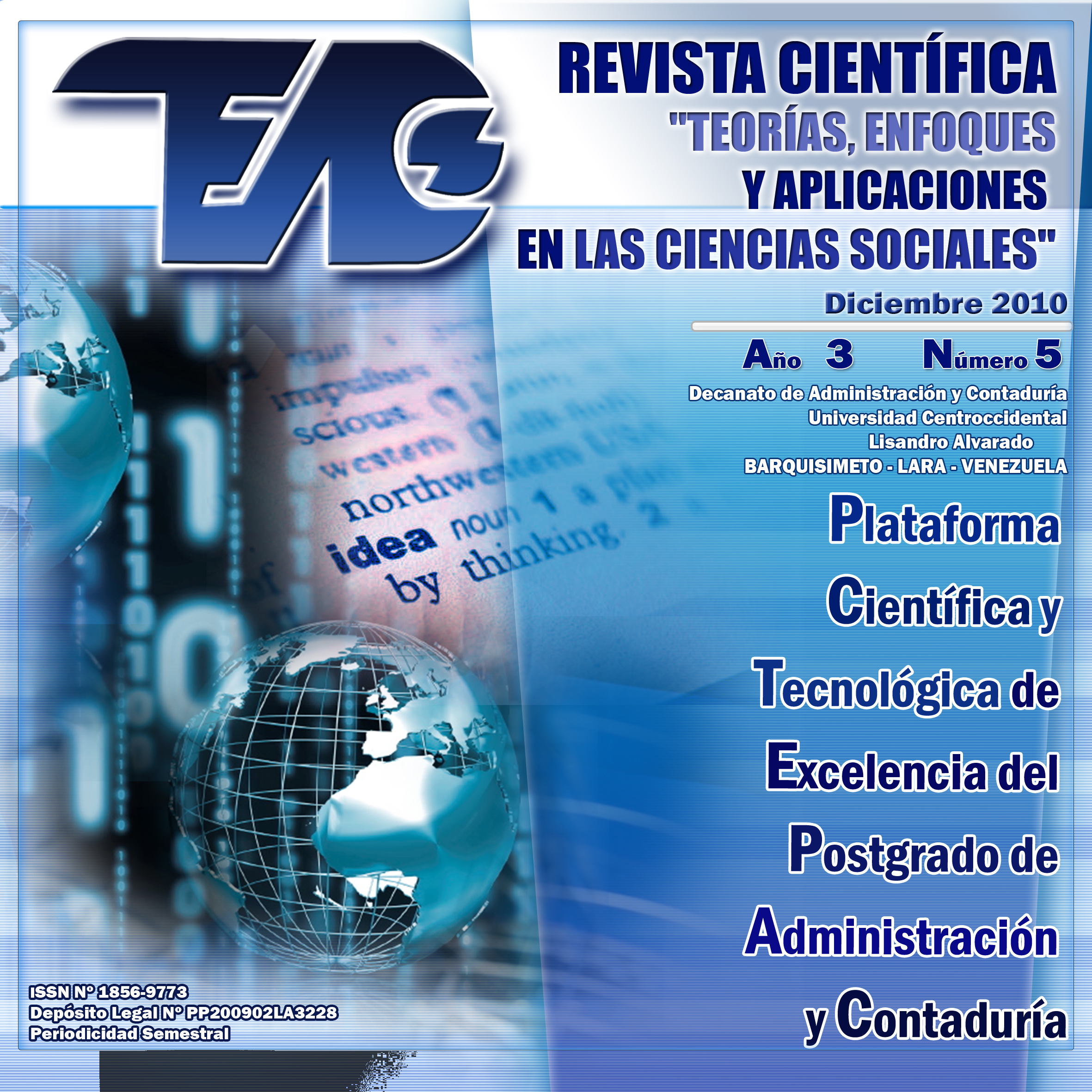Evaluative research of the "health-promoting schools" project
Keywords:
schools, health promotion, evaluative researchAbstract
The project of Extension "Health-Promoting Schools" was started in 2002 in order to educate future generations and provide them the abilities, skills and knowledge needed to promote their health, as well as the family and community health by strategies of educative intervention to children and educators. Seven years after developing the project, it was necessary to do a qualitative evaluative research with the aim of assessing the planning process, the implementation of the training program for educators and its sustainability. The qualitative paradigm was used as a methodology because it permits to know why and how the social interaction process happened, creating with all these inquiries, an accumulative knowledge and learned lessons that contribute to improve the project. The ontological and epistemological approach was hermeneutic, basically interpretative. It permitted to study the events exactly just as they are, allowing to know the structure and essentials of the processes in the project. The sample was made up of 71 educatiors and eight members of the board of five schools. The technique for collecting information applied to educators, members of the boards and planners was the focus group, as well as the data gathered by semistructure questionnaires and documental revision. It was found that the project was well supported and adequately designed. The educators consider the project useful for their personal and professional life. The project is sustainable through the time; however the participation of the community should be improved. The present study permitted to know the usefulness and goodness of the qualitative research for the assessment of a project of social nature. It also contributed with valuable, extensive and detailed information about the processes experienced. This information could not be found if the research had been done by the traditional cuantitative methods, giving very useful data to the responsable staff who implemented the project to improve strategies and redefine objectives
Downloads
References
De la orden (1991) Investigacion educativa Tecnología de la educcion. Madrid Santillana.
Denzim N., Lincoln, Y. (2000). Handbook of qualitative research. 2nd edition. New Park, Sage.
Fernández-Ballesteros R. (1995) Evaluación de programas. Una guía práctica en ámbitos sociales, educativos y de salud. Madrid. Editorial Síntesis S.A.
Glasser, G. (1997). The gronded theory. Recuperado en Abril 2004 en www.groundedtheory.com/review/html
Greene, W.; Simon, B. (1988). Educación para la salud. México: McGraw Hill Interamericana.
Jackson, M. (2002) Gestión de programas de educación permanente en los servicios de salud. Washington. OPS Series Paltex.
Katz, D. (1979). Psicología social de las organizaciones. México: Trillas.
Maddux, R. (1992). Como formar equipos de trabajo. Grupo Editorial Iberoamericano S.A. Serie Minutos.
Martínez, M. (1999) Evaluación Cualitativa de Programas. Psicoprisma. Asociación Venezolana de Psicología Social.
Martínez, M. (2004). Ciencia y arte de la metodología cualitativa. México: Edit. Trillas
Ministerio de Salud y desarrollo Social. (2002) Dirección de vigilancia Epidemiológica. Caracas. Boletín epidemiológico semanal.
Organización Panamerica de la Salud. (1995) Educación para la Salud en el Ámbito Escolar. Una Perspectiva Integral. Washington. Serie HSS/Silos-37.
Organización Panamericana de la Salud. (1999) Taller de Evaluación de Municipios Saludables. Informe Final. Washington D.C. 2-6
Pérez, Serrano G.( 2000) Modelos De investigación Cualitativa en educación social y animación socio cultural. Aplicaciones prácticas. Madrid. Narcea.
Perez Juste R (1995) Un modelo para la evaluación interna y externa de programas educativos. En educación de programas de centros educativos.Madrid.UNED.pp131-168.
Robere, M. (1993). Planificación estratégica de recursos humanos en salud. Serie Desarrollo de Recursos Humanos, 96. OPS Washington.
Teppa,S. ( 2005) Métodos de investigación cualitativa. Material de trabajo taller. Barquisimeto. Universidad Pedagógica Experimental Libertador.
Valles, M. (1999). Técnicas cualitativas de investigación social. Reflexión metodológica y práctica profesional. Síntesis sociológica. Madrid.
Published
How to Cite
Issue
Section
Derechos del/de autor/es a partir del año de publicación
Esta obra está bajo la licencia:
Creative Commons Reconocimiento-NoComercial-CompartirIgual 4.0 Internacional (CC BY-NC-SA 4.0)
Las opiniones expresadas por los autores no necesariamente reflejan la postura del editor de la publicación ni de la UCLA. Se autoriza la reproducción total o parcial de los textos aquí publicados, siempre y cuando se cite la fuente completa y la dirección electrónica de esta revista. Los autores(as) tienen el derecho de utilizar sus artículos para cualquier propósito siempre y cuando se realice sin fines de lucro. Los autores(as) pueden publicar en internet o cualquier otro medio la versión final aprobada de su trabajo, luego que esta ha sido publicada en esta revista.



